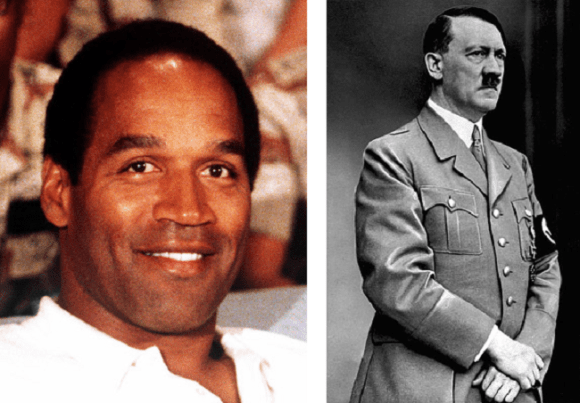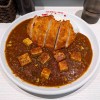When I first moved to Japan in college, every weekend meant a party and a new group of people to meet, with a standard set of questions I got asked. The logic behind “What’s your name?” was obvious, and “Where are you from?” also makes sense when you’re one of the few non-Japanese people in the room. “Do you like Japanese girls?” was another common one, based on the widely held, if not always true, theory that foreign guys like Japanese women, and vice-versa.
Those three always came first, but it wasn’t long until someone would want to know my blood type. No, my school wasn’t filled with vampires or hemophiliacs, nor hemophiliac vampires (the most tragic undead demographic). People just wanted to get a sneak peak at my personality, which is thought to be strongly connected to what runs through your veins by many people in Japan.
One man who’s not a believer, though, is Professor Kengo Nawata from Kyushu University’s Social Psychology Department, whose recently concluded research shows no correlation between personality and blood type.
Let’s start with a quick primer on blood type personality theories. In simple terms, Type As are thought to be earnest and considerate, Type Bs passionate yet self-centered, Type Os laid-back and easy-going, and Type ABs creative and mysterious.
It’s pretty easy to notice that “self-centered” sticks out as an undesirable trait in group-oriented Japan, and it’s not unusual to hear singles say “I wouldn’t want to date someone who’s Type B.” And hey, when it comes to romance, people like what they like, and don’t what they don’t. The bigger problem, though, and the one Nawata is troubled by, is companies in Japan asking about applicants’ blood types during job interviews, something the professor calls “Blood Type Harassment.”
“Sorry, your years of education, professional experience, and charitable work aren’t enough to allay our fears over your lazy, selfish blood.”
Nawata, along with a team of economic researchers, conducted a survey of more than 10,000 people in Japan and the U.S. Participants were asked for their attitudes regarding a total of 68 statements, such as “I leave fun things for later on,” and “People shouldn’t gamble.” Sawata then sifted through their responses to look for statistical discrepancies between respondents with different blood types.
The results were published in June in the journal of the Japanese Psychological Association. According to Sawata, differences between blood types were only observed for three of the 68 statements, and even then, they were minute.
“This strongly indicates that there is no connection between blood type and personality,” Sawata concluded.
Japan’s Ministry of Health, Labor, and Welfare shares Sawata’s disdain for the popular form of pseudo-science, as well as his concern over individuals’ economic prospects being inappropriately affected by their blood type. “Blood type has absolutely no relation to a person’s work abilities or aptitudes,” the organization asserted in a statement. Likewise, Osaka’s Labor Bureau has asked certain companies to stop asking job-seekers for their blood type on applications.
We suppose it might still be OK if you’re hiring workers for a blood bank, though.
So if psychologists and economists are speaking out against it, how did this whole blood type/personality thing become so prevalent? You can blame Masahiko Nomi, who wrote Understanding Affinity by Blood Type in 1971. From there, media outlets picked up his ideas, and the Japanese public imagination has never entirely let them go, despite some rather large contradictions to Nomi’s litmus/blood test of character.
For example, Al Capone’s Type O blood should have made him an easy-going guy, but history points to that label being less accurate than, say, violent mobster. And as for Type As? Well, here are two you might recognize.
▼ Considerate and sensitive
Wow, it’s like Nomi’s theories come from someone with almost no medical or psychological credentials at all! That’s not true though, at least until you remove the “almost” part. Nomi was a journalist who studied engineering in university. If being a writer without an educational background in mental health allows you to spout off on keys to a person’s psyche, my business degree and I want in on the action.
Anyone who drives a Mazda is kind and intelligent, with a great sense of humor and pleasant smell!
Some people are still unwilling to give up on Nomi’s ideas though, and usually cite two sources of anecdotal evidence. The first is that in Japan, where A is the most common blood type, being majime, earnest and responsible, is considered a virtue of the highest order. In contrast, blood type connection advocates say, the U.S. has many people who’re Type B, which is reflected in the American ideal of blazing your own trail in life.
Except, only about 11 percent of the U.S. has Type B blood, which doesn’t seem like nearly enough to be the driving force behind the country’s perceived national character. B isn’t even the most common American blood type (it’s O, and by a pretty decent margin). It’s more likely that Japan and America’s, on average, differing priorities are due to the influences of their differing historical and sociological circumstances.
Ryu’s faster fireball and Ken’s stronger dragon punch are the results of their specialized training regimens, not their respective O and B blood types
The other defense of linking blood type to personality comes from people who swear their coworker/ex/friend from high school fits Nomi’s profile exactly. While it’s hard to argue with personal experience, once again you can’t ignore the sociological factors at play here.
While some people are more interested in blood types than others, pretty much everyone in Japan is aware of the basic profiles we described above, such as type Bs being predisposed to self-centeredness. Ask yourself this, though: Do you know anyone who’s never done a single selfish thing?
Of course you don’t. Even the most considerate people occasionally give into temptation or just suffer a lapse in concentration and put themselves before others. The difference is that when Yamada, who’s Type A, finishes the last of a pitcher of beer, people think, “Eh, he must be thirsty,” or “He probably had a rough week.” But when Type B Tanaka does the same thing, he gets a different reaction.
“Haha Tanaka, you’re such a Type B!”
“Uh huh. And you’re such an -”
The human brain loves to look for patterns, and sometimes that’s a good thing. Long ago our ancestors put two and two together and realized everyone in the tribe who ate uncooked mammoth steaks that’d been lying out too long got sick and died, so maybe they should stop doing that, and our species got a little smarter and safer thanks to their powers of observation.
But sometimes, the brain goes into overdrive on its pattern hunt. When you stop and consider all of the life experiences, interpersonal relations, and soul-searching that goes into creating a person’s personality, it seems a little silly, and maybe even sad, to chalk it all up to the type of sugars attached to our red blood cells.
Sources: Yomiuri Online, American Red Cross, LiveScience, What’s My Blood Type
Insert images:Wikipeda/Everyme, Wikipedia (2)


 It’s time for lazy calisthenics! Half-hearted exercises for those with blood type B 【Video】
It’s time for lazy calisthenics! Half-hearted exercises for those with blood type B 【Video】 Yamagata blood donor out for blood, headbutts Red Cross staff after “waiting forever” in line
Yamagata blood donor out for blood, headbutts Red Cross staff after “waiting forever” in line “Drain me of my blood!” Otaku rush to donate for anime VTuber nurse
“Drain me of my blood!” Otaku rush to donate for anime VTuber nurse Japan’s curious obsession with blood type and personality illustrated in one photo
Japan’s curious obsession with blood type and personality illustrated in one photo What type of girlfriend are you? Wait a minute, let me check your bangs
What type of girlfriend are you? Wait a minute, let me check your bangs Randomly running into a great sushi lunch like this is one of the best things about eating in Tokyo
Randomly running into a great sushi lunch like this is one of the best things about eating in Tokyo Beautiful new Final Fantasy T-shirt collection on the way from Uniqlo【Photos】
Beautiful new Final Fantasy T-shirt collection on the way from Uniqlo【Photos】 Disney princesses get official manga makeovers for Manga Princess Cafe opening in Tokyo
Disney princesses get official manga makeovers for Manga Princess Cafe opening in Tokyo Is the new Shinkansen Train Desk ticket worth it?
Is the new Shinkansen Train Desk ticket worth it? Kyushu-exclusive Black Mont Blanc goes nationwide in a “Special” way
Kyushu-exclusive Black Mont Blanc goes nationwide in a “Special” way Cup Noodles Everything Bagel surprises ramen lovers around the world
Cup Noodles Everything Bagel surprises ramen lovers around the world Hamburg and Hamburg Shibuya: A Japanese restaurant you need to put on your Tokyo itinerary
Hamburg and Hamburg Shibuya: A Japanese restaurant you need to put on your Tokyo itinerary Tokyo restaurant’s chicken katsu mabo curry is hard to pin down, easy to love
Tokyo restaurant’s chicken katsu mabo curry is hard to pin down, easy to love Foreign English teachers in Japan pick their favorite Japanese-language phrases【Survey】
Foreign English teachers in Japan pick their favorite Japanese-language phrases【Survey】 We go looking for the free kaoyu hot spring facebath of onsen town Kusatsu【Photos】
We go looking for the free kaoyu hot spring facebath of onsen town Kusatsu【Photos】 We try out “Chan Ramen”, an underground type of ramen popular in the ramen community
We try out “Chan Ramen”, an underground type of ramen popular in the ramen community New Studio Ghibli bedding sets are cool in all senses of the word
New Studio Ghibli bedding sets are cool in all senses of the word Our Japanese reporter visits Costco in the U.S., finds super American and very Japanese things
Our Japanese reporter visits Costco in the U.S., finds super American and very Japanese things New Pokémon cakes let you eat your way through Pikachu and all the Eevee evolutions
New Pokémon cakes let you eat your way through Pikachu and all the Eevee evolutions There’s a park inside Japan where you can also see Japan inside the park
There’s a park inside Japan where you can also see Japan inside the park Japanese convenience store packs a whole bento into an onigiri rice ball
Japanese convenience store packs a whole bento into an onigiri rice ball Hanton rice — a delicious regional food even most Japanese people don’t know about, but more should
Hanton rice — a delicious regional food even most Japanese people don’t know about, but more should Final Fantasy, Kingdom Hearts, and Dragon Quest pet product line announced by Square Enix
Final Fantasy, Kingdom Hearts, and Dragon Quest pet product line announced by Square Enix Studio Ghibli releases Kiki’s Delivery Service chocolate cake pouches in Japan
Studio Ghibli releases Kiki’s Delivery Service chocolate cake pouches in Japan Japan’s bone-breaking and record-breaking roller coaster is permanently shutting down
Japan’s bone-breaking and record-breaking roller coaster is permanently shutting down New definition of “Japanese whiskey” goes into effect to prevent fakes from fooling overseas buyers
New definition of “Japanese whiskey” goes into effect to prevent fakes from fooling overseas buyers Foreign passenger shoves conductor on one of the last full runs for Japan’s Thunderbird train
Foreign passenger shoves conductor on one of the last full runs for Japan’s Thunderbird train Kyoto bans tourists from geisha alleys in Gion, with fines for those who don’t follow rules
Kyoto bans tourists from geisha alleys in Gion, with fines for those who don’t follow rules Studio Ghibli unveils Mother’s Day gift set that captures the love in My Neighbour Totoro
Studio Ghibli unveils Mother’s Day gift set that captures the love in My Neighbour Totoro Domino’s Japan now sells…pizza ears?
Domino’s Japan now sells…pizza ears? Toyota built a life-sized Miraidon Pokémon and are letting people test drive it this weekend
Toyota built a life-sized Miraidon Pokémon and are letting people test drive it this weekend New Japanese KitKat flavour stars Sanrio characters, including Hello Kitty
New Japanese KitKat flavour stars Sanrio characters, including Hello Kitty Sales of Japan’s most convenient train ticket/shopping payment cards suspended indefinitely
Sales of Japan’s most convenient train ticket/shopping payment cards suspended indefinitely Sold-out Studio Ghibli desktop humidifiers are back so Totoro can help you through the dry season
Sold-out Studio Ghibli desktop humidifiers are back so Totoro can help you through the dry season Japanese government to make first change to romanization spelling rules since the 1950s
Japanese government to make first change to romanization spelling rules since the 1950s Ghibli founders Toshio Suzuki and Hayao Miyazaki contribute to Japanese whisky Totoro label design
Ghibli founders Toshio Suzuki and Hayao Miyazaki contribute to Japanese whisky Totoro label design Doraemon found buried at sea as scene from 1993 anime becomes real life【Photos】
Doraemon found buried at sea as scene from 1993 anime becomes real life【Photos】 Tokyo’s most famous Starbucks is closed
Tokyo’s most famous Starbucks is closed One Piece characters’ nationalities revealed, but fans have mixed opinions
One Piece characters’ nationalities revealed, but fans have mixed opinions We asked a Uniqlo employee what four things we should buy and their suggestions didn’t disappoint
We asked a Uniqlo employee what four things we should buy and their suggestions didn’t disappoint Princesses, fruits, and blacksmiths: Study reveals the 30 most unusual family names in Japan
Princesses, fruits, and blacksmiths: Study reveals the 30 most unusual family names in Japan Studio Ghibli’s new desktop Howl’s Moving Castle will take your stationery on an adventure
Studio Ghibli’s new desktop Howl’s Moving Castle will take your stationery on an adventure Personality test-obsessed Japan devises “Frozen” princess personality test for women
Personality test-obsessed Japan devises “Frozen” princess personality test for women Japanese women’s magazine’s list of traits for an ideal man is both understandable and baffling
Japanese women’s magazine’s list of traits for an ideal man is both understandable and baffling Does the way you eat ice cream say something about you? Japanese Twitter users compare styles
Does the way you eat ice cream say something about you? Japanese Twitter users compare styles Health Tip: Drinking live pig’s blood may lead to worms in your brain
Health Tip: Drinking live pig’s blood may lead to worms in your brain With Comiket returning, so is its anime-posters-for-otaku-blood blood drive
With Comiket returning, so is its anime-posters-for-otaku-blood blood drive It’s OK to eat ramen every day, says Japanese doctor…as long as it’s not one type
It’s OK to eat ramen every day, says Japanese doctor…as long as it’s not one type Can’t finish all your sake? Try bathing in it for healthy, younger-looking skin!
Can’t finish all your sake? Try bathing in it for healthy, younger-looking skin! Controversial busty manga girl Red Cross poster’s artist donates blood
Controversial busty manga girl Red Cross poster’s artist donates blood Study of blood tests in Tokyo finds 98% as having vitamin D deficiencies
Study of blood tests in Tokyo finds 98% as having vitamin D deficiencies Japanese photographer captures the beauty of Kyoto in the snow 【Photos】
Japanese photographer captures the beauty of Kyoto in the snow 【Photos】 Japanese study finds KFC’s paripari crispy chicken sound increases blood flow in brain, appetite
Japanese study finds KFC’s paripari crispy chicken sound increases blood flow in brain, appetite Out-of-cash otaku? In Japan, you can exchange your blood for cool anime posters this summer
Out-of-cash otaku? In Japan, you can exchange your blood for cool anime posters this summer Vampire Cafe: Over a decade of Tokyo’s best undead dining in Ginza
Vampire Cafe: Over a decade of Tokyo’s best undead dining in Ginza Robot finger covered in living skin developed by University of Tokyo
Robot finger covered in living skin developed by University of Tokyo
Leave a Reply